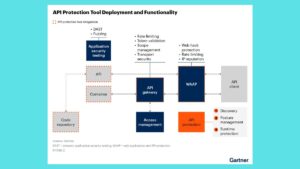Simplifying Payroll Management: How HR Ensures Accurate and Timely Compensation


Payroll management is a critical function of Human Resources (HR) that ensures employees are accurately and promptly compensated for their work. From calculating wages and deductions to complying with tax regulations and maintaining payroll records, HR plays a pivotal role in streamlining payroll processes. In this blog, we will explore the significance of HR payroll management, its key components, and how it contributes to employee satisfaction and organizational success.
- Accurate Payroll Calculation:
One of the primary responsibilities of HR in payroll management is accurately calculating employees’ wages, including regular pay, overtime, bonuses, and commissions. HR professionals ensure that payroll calculations align with employment contracts, company policies, and legal requirements. They take into account variables such as hours worked, leave taken, and any applicable deductions or withholdings. Accurate payroll calculation not only ensures that employees receive the correct compensation but also maintains trust and transparency within the organization.
- Tax Compliance:
HR payroll management includes complying with tax regulations and ensuring accurate tax withholding and reporting. HR professionals are responsible for deducting income tax, Social Security contributions, and any other applicable taxes from employees’ wages. They stay updated on changing tax laws and regulations, make necessary adjustments to payroll systems, and provide accurate tax information to both employees and tax authorities. Compliance with tax regulations is crucial for avoiding penalties and legal issues, and HR plays a pivotal role in ensuring payroll-related tax compliance.
- Timely Payment Processing:
HR professionals manage the entire payroll process, ensuring that employees receive their wages on time. They coordinate with finance departments, set up payment schedules, and ensure that payroll processing is completed accurately and promptly. Timely payment processing is crucial for employee satisfaction and retention, as it demonstrates the organization’s commitment to fulfilling its financial obligations to its workforce. HR payroll management ensures that employees can rely on their paychecks being disbursed on the agreed-upon dates.
- Recordkeeping and Documentation:
HR payroll management involves maintaining accurate payroll records and documentation. HR professionals keep records of employee wages, deductions, tax forms, and other relevant payroll information. These records serve as a crucial reference for audits, financial reporting, and addressing employee queries or disputes related to their compensation. Proper recordkeeping ensures transparency, helps in resolving discrepancies, and ensures compliance with legal and regulatory requirements.
- Employee Self-Service and Support:
Effective HR payroll management involves providing employee self-service tools and support. HR professionals implement payroll software or online portals that enable employees to access their pay stubs, tax forms, and other payroll-related information conveniently. This self-service approach empowers employees to independently manage and track their compensation details, reducing administrative burden on HR. Additionally, HR provides timely support and guidance to employees for any payroll-related inquiries or issues, ensuring a positive employee experience.
Conclusion:
HR payroll management is a critical function that ensures accurate and timely compensation for employees. By accurately calculating wages, complying with tax regulations, processing payments on time, maintaining payroll records, and providing employee self-service tools and support, HR professionals streamline the payroll process and contribute to employee satisfaction and organizational success. Efficient and transparent payroll management builds trust, ensures compliance with legal requirements, and fosters a positive work environment. Embracing effective HR payroll practices is essential for organizations to maintain the financial well-being of their employees and uphold their commitment to fair and timely compensation.







